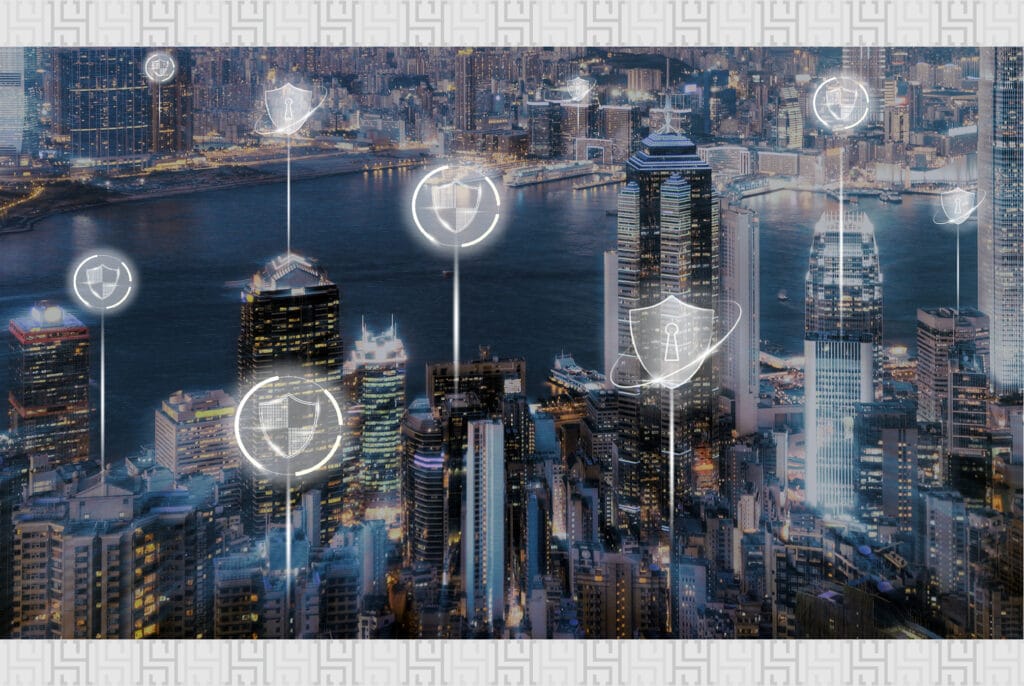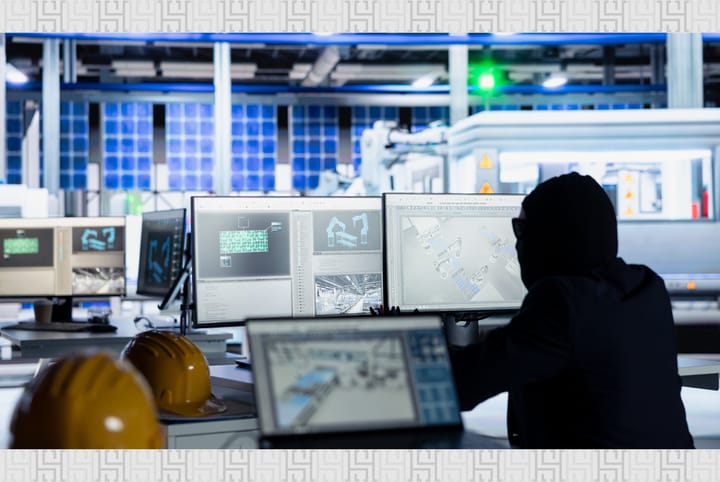Cybersecurity in engineering is a critical concern in today’s digital world. As key actors in complex supply chains and depot banks with valuable intellectual property, technology companies faced unique cybersecurity risks that could have continuous consequences if not addressed proactively. Protecting your intellectual property is essential to maintaining a competitive advantage and ensuring the success of your engineering project.
What is Cybersecurity in Engineering?
Cybersecurity in engineering includes protecting sensitive data, intellectual properties, and operating systems from cyber threats. The engineering industry, including manufacturing and precision technology, has a high value of its assets, making it an attractive target for cybercrime due to the complex nature of supply chain relationships.

Key Cyber Threats in Engineering Firms
Engineering companies need to deal with many cybersecurity threats that can take advantage of the weaknesses of systems and processes. Risks include:
- Supplier Attacks: Cybercriminals often target small businesses within their supply chains to access more secure organizations. To compromise the system, an attacker can infiltrate the network of the ultimate target, causing extensive damage.
- Ransomware: Requesting a ransomware attack can paralyze the operations of your engineering office. These attacks usually involve the encryption of corporate data and require ransom payments in exchange for a decryption key.
- Intellectual Property Theft: Engineering firms are due to the key goals of IP theft: valuable design, patents, and business secrets. A data violation against important documents can lead to competitors accessing long-standing research and development, undermining the competitive advantage and the company’s market share.
Why Cybersecurity in Engineering?
Protecting Intellectual Property
In engineering firms, intellectual property is often the most valuable asset. This represents the climax of years of innovation, research, and development, and forms the basis of competitive advantage. Protecting rights in intellectual property not only reduces significant financial risks but also strengthens customer trust.
Ensuring Project Continuity and Customer Trust
Cyberattacks have a devastating impact on the capabilities of the engineering office, jeopardizing technology projects on budget at the best of times. Operational failures caused by cybersecurity threats such as ransomware can cause production to halt, leading to deadlines, contractual punishments, and damage to customer relationships.
Furthermore, compliance with recognized best practices in cybersecurity in engineering, such as cyber-intrinsic authentication, is a prerequisite for many engineering companies that want to acquire and maintain high-value contracts. Customers, particularly those in the critical infrastructure sector, are increasingly seeking references to robust cybersecurity in engineering as part of their due diligence process. If you fail to meet these requirements, this can lead to a lost business opportunity and a cloudy reputation.

Key Areas of Cybersecurity in Engineering
Network Security and Access Control
Ensuring your engineering office IT systems are important to maintain operational integrity and prevent costly cybersecurity incidents. Network segmentation and access control are important for engineering companies that rely on legacy systems such as Windows XP. The separation that requires protection reduces the risk that legacy machines from the main network and strict access control implementations will be used as an attacker’s entry point.
Data Encryption and Confidentiality
Data encryption is the fundamental tool for protecting sensitive information and intellectual property from data injury and industrial spying. By encrypting sensitive data both at idle and in transit, engineering companies can protect sensitive information and ensure that valuable information is unreadable by unauthorized parties, even if the system is compromised.
Cybersecurity Compliance and Regulation
Achieving and maintaining relevant standards and regulations is a legal obligation not only for many engineering companies but also for their competitive advantage.

How Do You Improve Cybersecurity in Engineering Offices?
Implementing Cybersecurity Risk Assessment
The first step to improving the security of engineering companies is to carry out a thorough assessment of cybersecurity risks. This process involves identifying critical assets, assessing existing security controls, and determining potential security gaps that attackers can use.
By examining the latest cyber incidents in the engineering industry, businesses can gain valuable insight into the tactics and technologies used by cybercriminals. These findings could impact the development of targeted strategies to reduce risks that address the industry’s most urgent cybersecurity threats.
Implementing A Robust Firewall and Anti-Malware Solutions
Implementing robust firewalls and anti-malware solutions is extremely important to defend against the increasing risk of ransomware and other malicious software. These tools are the first line of defense, monitoring network traffic and blocking suspicious activity before it harms.
Training Employees in Cybersecurity Best Practices
Employees are often the weakest link in an organization’s cybersecurity defense. Human errors, such as clicking on phishing links or using weak passwords, can provide an attacker a simple entry point for the company system. Therefore, investing in cybersecurity training for employees is extremely important.
Regular training sessions should cover topics that cover specific cybersecurity defenses, such as identifying phishing attempts, creating strong passwords, and securely handling sensitive data. By maintaining a culture of cybersecurity awareness, engineering can turn employees from potential threats to active participants in the defense against cyber threats.

And now you know everything you need to know about cybersecurity in engineering. For more information, you can contact HS Group today at +967 2 237793/4/5 or info@hs-gp.com.






